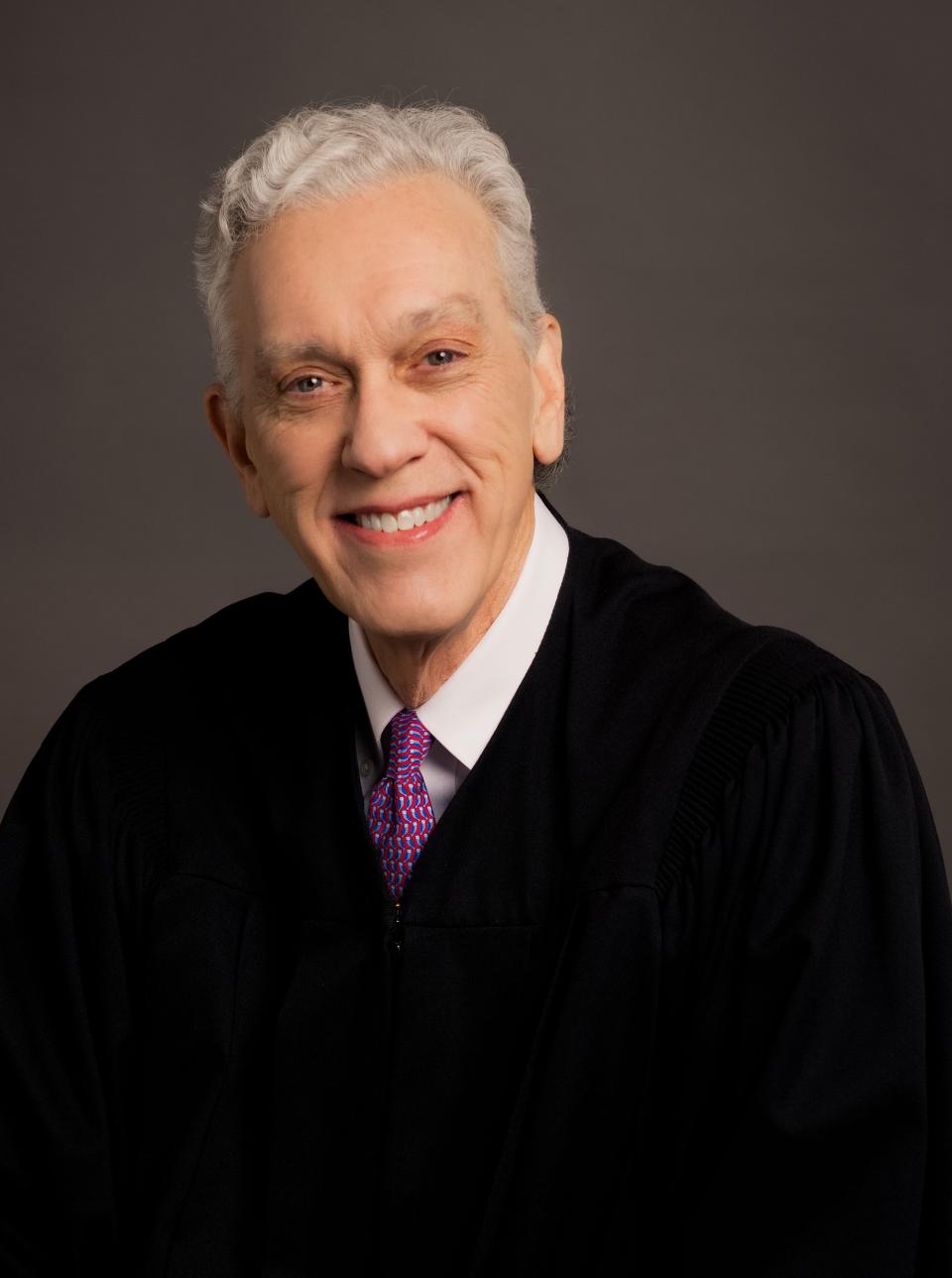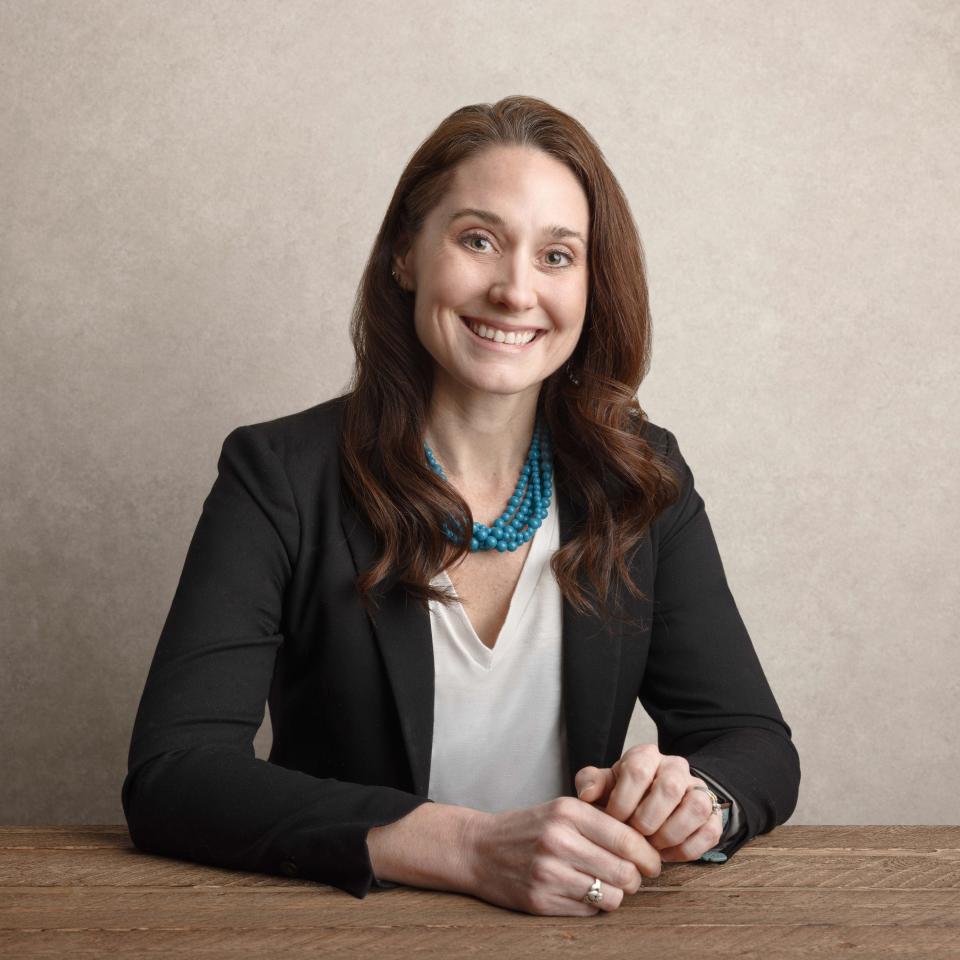Here's what to know about the candidates running for Court of Appeals
It's rare an incumbent judge is challenged by an opponent in an election, but that's exactly what's happening this year in Milwaukee in the race for Court of Appeals.
A local labor and employment attorney is facing off against a judge who has more two decades of experience on the bench.
The Journal Sentinel sat down with both candidates to learn why they're running and to get their takes on a few issues surrounding the judgeship.
What is the court of appeals?
The primary function of the Court of Appeals is to correct errors that occurred at the circuit court level. It is composed of 16 judges across four districts in the state. Milwaukee is unique in the court of appeals because it has its own district due to its population size and number of cases. Judges serve six-year terms.
Who are the candidates?
Bill Brash
Appointed to Appeals Court Judge, 2015
Re-elected to Appeals Court, 2017
Made Chief Judge of Wisconsin Court of Appeals, 2021
Spent 14 years as Circuit Court Judge
Spent 13 years as Municipal Judge
Practicing attorney for 23 years
Served one term as trustee for village of Fox Point
Sara Geenen
Partner, The Previant Law Firm, S.C.
Attorney for 16 years
Focuses on labor, bankruptcy and employment law
Has primarily represented workers and local and international labor organizations
Former board member, One Wisconsin Now and the State Bar of Wisconsin (Labor and Employment Law Section)
Why are you running?
Brash: I still enjoy the work very much. It's challenging, it's different. It's from a different perspective. Having served as a trial judge, you become familiar with what goes on there and how that functions and operates. But then ultimately, it's learning, I would say, a new skill set because it's different than most people would perceive it to be. The Court of Appeals is an error-correcting court. It reviews cases basically beginning to end based on the challenges that are raised, applies the standards that exist with regards to those challenges, takes a look at the facts and makes a determination if there were things that occurred either in the process, errors that were made by the trial court and potential errors that were made by the lawyers. People have different ideas as to how things are supposed to happen, I get that. And obviously, I'm running because I think I am the best qualified person to meet the demands to continue to serve in this capacity and to hopefully benefit the people in the state of Wisconsin.
Geenen: I'm running because I think that it is time to make sure that we hold our courts accountable. That we hold our judges accountable. And that we hold the entire judicial system accountable. That we make it more accessible and something that people have a bit more understanding about. I come from a blue-collar background. There's rules, there's procedures, there's just a certain way that things work that is not necessarily how things work in everyday life. That makes it inaccessible many times. I think coming from this perspective and this background and recognizing first the challenges to access and the limitations that may go along with it is important to making change and ensuring that people are confident in the judiciary. I am running because I believe that I'm the better candidate. I believe that this court needs some additional perspective or different perspective. And I think that I can bring that.

What is your judicial philosophy?
Brash: I think the benchmark of my career is best understood by viewing my record of fairness and impartiality. I think those are extremely descriptive terms of the nature and part of the philosophy that I follow because for me, everything involves people. You can say, "Well, this corporation's suing that corporation," or something of that on a civil level, but the reality is that at the heart of that corporation are individuals, and all of them are impacted by those decisions that you make. So it can be one individual, it could be the state versus that individual. It could be a corporate entity, doesn't matter what, all of those involve people at the end of the day and impact tremendously on their lives, so they're all tremendously important.
Geenen: A judge's job is to ensure the fairness of the process, the fairness of the entire process for everybody. And to keep that in mind while they're making decisions that protect these basic principles that requires checks and balances. That the people are the foundation of our government, our democracy and that is really the guiding principle. We're ensuring that we are interpreting the laws and constitution in a manner that is consistent with their intent.

What are some of the biggest challenges facing the appellate court right now/What would you want to see different?
Brash: I've made requests to get increased funding (from the state), not of full-time staff, but limited-term employees, so that we can bring them in to make sure that we're covering some of the gaps that we have. Going back 20 years, my predecessors have been making requests for increase in staffing for what are referred to as staff attorneys that work for the court system just in an effort to quicken process. If you have 10,000 motions versus 16,000 motions, each of those is ultimately reviewed by a staff attorney. They work it up, they then submit it to the judges for their review and approval. Part of it seems to be a manpower issue right now. It may require an alternate restructuring and potentially reallocation. And if you were to shift things around in the court, because it was created legislatively, it'd have to be modified legislatively. So I think we should take look at that and see how it's ultimately functioning and potentially address the reallocation or allocation of those resources so as to better serve the state of Wisconsin.
Geenen: Someone who comes in should recognize their limitations and learn from those who've been there. I think your goal is to learn the ropes of the operations. But my goal is to ensure that any cases that I decide or have input on are clear and transparent so the litigants in those cases understand where I'm coming from, where the court is coming from. And I think that's a small thing that you can start to do to move things in the right direction. The other thing is making the courts less intimidating by opening them up, by doing more outreach. I enjoy talking to students, the public and regular people. It's the favorite part of my job, honestly. And in addition, I think the court could occasionally hear more oral arguments. There's very few, nearly none, that this court considers. I think oral arguments are also important from time to time. Not in every case because it's impossible with the kind of caseload they have, but to hear more oral arguments on cases and potentially make decisions so that people are getting a full and fair consideration by the Court of Appeals.
In 2021, the court of appeals decided 2,200 cases while the state supreme court decided 44. Court of appeals is often the last stop for many cases and, in few cases, can set precedent. How comfortable are you with this power?
Brash: Absolutely. I'm a big believer in addressing issues on the merits as opposed to potentially some technical issues. Have I been presented with I'll call them maybe potential constitutional challenges to things that have occurred since I've been here? Absolutely. One that comes to mind dealt with the application of medical malpractice caps. It's had a history in Wisconsin, that is it's vacillated from time to time, which is basically caps recoveries in particular situations. In that particular case, both I and my colleagues believed that it was both unconstitutional as applied in that particular situation and unconstitutional on its face. I disagreed that I didn't think it was unconstitutional on its face, but I did think it was unconstitutional as applied because applying those standards, I thought it worked a hardship on this particular individual that was inappropriate. So you do see those. Admittedly, you don't see those often, but then we dealt with that case and it resulted and ultimately went up in front of the Supreme Court for further review.
Geenen: Absolutely. I’m an attorney. I’ve worked on constitutional cases for things like Act 10 (relating to state finances, collective bargaining for public employees, compensation and fringe benefits of public employees) and right to work. I haven’t handled any criminal cases and have done some pro bono work in children’s court cases, but constitutional issues aren’t the only issues decided in the court of appeals. Those cases often end up in the supreme court anyways. I’m comfortable interpretting the law and reaching the conclusions myself and reaching the right decision and right conclusion with the other judges to reach a decision collectively and correctly.
Anything else you'd like voters to know?
Brash: this campaign for me is all about qualifications, background, experience. Have other people served on a Court of Appeals without having been a circuit court judge? Sure they have, but it's not something that happens immediately, it's kind of a learned position. If you're an individual, and again, this is not a criticism, Attorney Geenen has focused her life based on her beliefs and things that are important to her in a certain aspect of the law. Mine's a little bit more diversified because while in private practice, I was what I guess people call a general practitioner. I covered a myriad of areas. I've also served on the circuit court for misdemeanors, felonies, civil, criminal. It gives you a background; it gives you an understanding. It gives you a greater depth of knowledge, I believe, on which to draw, so I think it puts me in a better position to continue to serve in that capacity.
Geenen: Not a lot of people run against sitting judges run against incumbent judges. And I think that I am running because I believe that I'm the better candidate. I believe that this court needs some additional perspective or different perspective. And I think that I can bring that. I also think that it's important to restore our values, the values of the folks in Milwaukee County to the bench. And I certainly intend to do that.
This article originally appeared on Milwaukee Journal Sentinel: Candidates in Court of Appeals race emphasize fairness, accessibility

